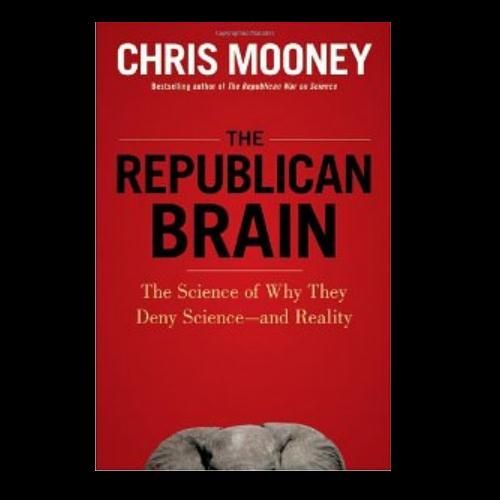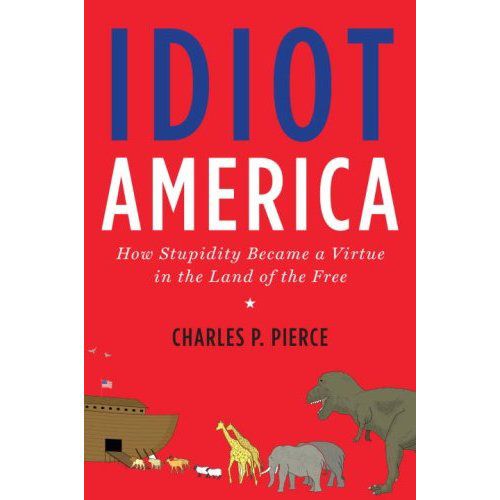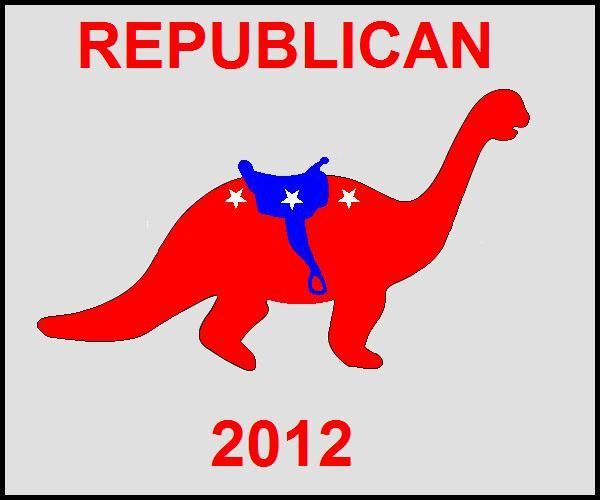http://www.alternet.org/story/155646/co ... age=entire
Apparently, there is a physiological or neurological difference in the brains of conservatives and liberals, not that one is necessarily better or worse than the other, but certainly different.
I like to think of the social and political aspects as a car, whereas liberalism is the engine, and conservatism is the break.
Of course, you're not going to get anywhere if you keep your foot on the break all the time. Sometimes you have to ease off on the break, and rev up the engine if you want to get somewhere.
Anyway, that's how I see it.
OK, I don't have a problem with those who are moderately conservative, but I do have a real problem with right-wing extremists, and also, those on the extreme left.
When one goes either to the extreme right, or extreme left, then it ceases to be merely conservative or merely liberal anymore.
Anyway . . . . .
Well, today I ordered the book titled "The Republican Brain: The science of Why The Deny Science - and Reality".AlterNet / By Chris Mooney
Conservatives Attack Scientific Findings About Why
They Hate Science (Helping to Confirm the Science)
Some would like to dismiss the inconvenient findings about
the political right, but the science wonâ??t let them.
May 29, 2012 | Two months have passed since my new book, The Republican Brain, was published, and so far it has gotten a lot of media attention. However, the coverage has followed a noteworthy pattern: while progressives and liberals seem intrigued about what Iâ??m saying, the so-called â??mainstreamâ? mediaâ??the CNNs of the worldâ??have shied away from the subject
Photo Credit: ShutterStock.com
Whatâ??s up with this? Well, a book with conclusions closely related to mineâ??Norman Ornsteinâ??s and Thomas Mannâ??s Itâ??s Even Worse Than It Looks: How the American Constitutional System Collided With the New Politics of Extremismâ??seems as though it is being handled similarly by some in the press. And perhaps thereâ??s a reason: Centrist (aka â??mainstreamâ?) journalists might well prefer that the findings of these books not be true.
You see, if Iâ??m wrong, then the press can happily go on doing what it has always done: Splitting the difference between the political left and the political right, and employing â??on the one hand, on the other handâ? treatments that presume weâ??re all equally biased, all equally self-interested...just in different directions.
The trouble is, Iâ??ve presented a substantial body of scientific evidence suggesting that this simply isnâ??t the case. More specifically, the science Iâ??ve presented suggests that the political right and left are quite different animals; that they perceive the world differently and handle evidence differently; and most importantly, that the polarization and the denial of science in modern American politics are fundamentally the fault of the authoritarian right. (Mann and Ornstein argue something very similar about todayâ??s Republican Party.)
In other words, if my book is right, we have to discard much that we thought we knew about politics. If the science of political ideology is right, then the ground shifts beneath us.
It is very natural, then, that a lot of peopleâ??centrist journalists perhaps most of all--donâ??t want to accept what Iâ??m saying. The problem is, where is the scientific counterargument to what Iâ??m saying?
Current State of the Science Supports The Republican Brain Thesis
The evidence for my thesisâ??that liberals and conservatives differ by personality, psychological needs, moral intuitions, and numerous other traits; and that this is what is lurking behind our political battles over what is true, on issues ranging from global warming to whether President Obama was born in the U.S.--was lying in plain sight in the scientific literature. I simply compiled it and reported on it. Notably, this evidence is not dependent on the work of any one scientist or group of scientists, on any one methodology, or on any one discipline. It is cross-disciplinary, and it is growing.
No wonder that since the book came out, Iâ??ve heard from a number of researchers whose work Iâ??ve reported on, saying that Iâ??ve done an accurate job. Indeed, there have been a number of public remarks from people of expertise, saying essentially the same thing.
Most prominent among these is Jonathan Haidt, the University of Virginia moral psychologist and the author of the much discussed book The Righteous Mind. Notably, Haidt defines himself as a â??centrist,â? not a liberal. On MSNBCâ??s Up With Chris Hayes, Haidt had this to say about my thesis:
Haidt went further, adding that his own science casts additional light here:Chris has done a great job of surveying the literature. I want to give him a stamp of approval. He is not cherry picking, he is representing the current state of thinking about politics and personality.
Haidt isnâ??t the only one. Chris Crandall, a social psychologist and a researcher on ideology at the University of Kansas, reviewed the book on Amazon.com. Hereâ??s what he had to say:I want to fully agree with Chris that the psychology does predispose liberals more to be receptive to science; my own research has found that conservatives are better at group-binding, at loyalty, and so if you put them in a group-versus-group conflict, yes the right is more prone, psychologically, to band around and sort of, circle the wagons.
Everett Young, my collaborator in Chapter 13 of the book, is a Ph.D. political psychologist. He writes:â?¦Mooney is a partisan, and he's looking at the data with the thesis that members of the Republican Party are more close-minded, less scientific, and more willing to disregard experts. And, well, the science backs him up on this. The fact that the research supports his position doesn't sully him OR the science. He's not the one doing the research; Mooney's biases cannot affect studies that he's completely uninvolved in. Of course, he does like what he reads, but is [there] a shame in being right? There isn't.
I am not a scientist, and have never claimed to be. I am a science journalist. But it is precisely because I report on science and interview the scientists involved that I am able to stick closely to what they have to say, and what they have learned.Chris simply collects in one place the wide research about the differences in cognitive style that give rise to different kinds of ideological thinking, and argues that these differences might help explain why conservatives in this day and age seem to reject empirical evidence on the major issues more readily than liberals do, and hold political beliefs in strong contravention of such evidence.
Much evidence is in, as this book details. Seeing the world in more black-and-white terms IS associated with conservatism. Less curiosity is also. This needn't make conservatives inferior. In fact, such a cognitive style can have advantages, especially where decisiveness is required. But it's certainly plausible that a quickly decisive cognitive style is also less interested in updating its internal map of the outside world to comport with EVIDENCE.
Which is, in and of itself, inconvenient for the reality-denying right.
The Rightâ??s Arguments Against the Science Are Ill-Informed At Best
So what do conservatives have to say in response to this science? Honestly, the objections are quite weak, and frankly provide a wealth of new evidence in support of the bookâ??s argumentâ??that conservatives tend to simply reject science and evidence when it threatens their beliefs. The main conservative counterargument relies on little more than misrepresenting the book and its arguments. Jonah Goldberg claimed, in USA Today, that I was saying there is something wrong with conservatives; that they have â??bad brains.â? Nonsense, and I refuted Goldberg here.
Hank Campbell and Alex Berezow went even further, claiming the book espouses a new form of eugenics and calls Republicans â??genetically inferior.â? The book says nothing of the sort. (Andrea Kuszewski skewered their various errors.)
Ernest Istook, the former member of Congress and now a fellow at the Heritage Foundation, hit the same note:
Well, no, it isnâ??t the thesis. With all of these critics, one wonders whether they actually read the book.Conservatives are simpletons with a mental defect.
That claim is offensive, odious, obnoxious and downright deranged. But itâ??s the thesis of a book that liberals are buying up, written by Chris Mooney, called â??The Republican Brain.â?
A slightly more serious conservative critique came from Andrew Ferguson of the Weekly Standard who, in a cover story, dismissed both me and Jonathan Haidt, based upon various methodological critiques of psychology studies, especially those relying on subject pools of undergraduates. Ferguson is calling into question the sampling and methodological practices that are used regularly in papers published in the leading journals of the field. In other words, heâ??s attacking science.
But not only are these methods eminently defensible; and not only have psychologists been weighing such concerns for decades. The case Iâ??m making doesnâ??t rest solely on these kinds of studies, or on the work of any one scholar or methodology. Indeed, most recently, the research on psychological differences between left and right has been backed up by physiological research, and even, tentatively, by some brain studies. Thus, Fergusonâ??s argument also collapses.
So whatâ??s left? Not much, other than the standard conservative distrust of what academic scientists are up toâ??coupled with a pretty impressive amount of overconfidence. After all, conservatives seem to think that they are competent to critique--not in the scientific literature, but in the media and on blogs--an entire field. And then, to dismiss it based on those critiques.
Everett Young, commenting on Facebook, had perhaps the best gloss on conservativesâ?? willingness to dismiss academia without even trying to play the game:
What It All MeansIf conservatives want more conservatives in the academic research enterprise, then let them join us. Do not criticize those who are in the trenches working hard at it for YOUR absence from the trenches.
The "too much liberalism in academia" criticism is exactly this ridiculous. It's like out-of-shape people criticizing a gym for the fact that everybody who works out there is in great shape.
All of which creates a rather extraordinary situation.
A lot of people are clearly threatened by what my book is saying. And no wonder, for the claims it makes are deeply inconvenient, both to conservatives but also to quite a lot of media centrists. (Liberals get a drubbing too in much of this researchâ??for being indecisive and wishy-washy--but somehow they donâ??t seem particularly worried about that. Which itself is interesting, no?)
However, the scientific argument against my basic claimâ??liberals and conservatives are just different people, psychologically--is not really making itself apparent. So could it be that Iâ??m actuallyâ?¦.er, right?
Time will tell. At least at the present time, it certainly does look like the available evidence leads to a conclusion that many people donâ??t want to accept.
But perhaps they shouldnâ??t be so threatened. One implication of my book, after all, is that liberalism and conservatism simply reflect different but enduring parts of human nature. And that means that liberals (and scientists) are simply the kind of people who like to stir the pot and shake things upâ??and always will be. Itâ??s like the line about Jean Jacques Rousseau (an 18th century â??liberalâ?) that I quote at the end of the book: â??He could not be hindered from setting the world on fire.â?
Is it possible that, paradoxically, this is something conservatives could learn to accept or even respect? After all, itâ??s kind of a basic human tradition. Liberals push the envelope, and err on the side of too much open-mindedness; conservatives pull us back again, and err on the side of too much closure. It could be a productive relationship. It could be considered normal, and even necessary.
But that wonâ??t happen until conservatives, and journalists, are willing to accept what the science of politics is now telling us.
Chris Mooney is the author of four books, including "The Republican War on Science" (2005). His newest book is "The Republican Brain: The Science of Why They Deny Scienceâ??and Reality".

I should be getting this book (hard cover) sometime next week. It cost me about $20 dollars including shipping and handling. I ordered it from Barnes & Nobel.
I'm really looking forward to reading this one. I can hardly wait.
OK, I pretty much see human history as a battle between conservative thinkers and progressive thinkers, a prime example, being the conflict between the Roman Catholic church (ultra-conservative thinkers) and the Italian astronomer and mathematician Galileo, a progressive thinker.
Copernicus and Galileo were not the first to propose that the earth and all the planets revolved around the sun. Over 2000 years ago, a Greek philosopher, Democritus, had also proposed that the earth and the planets revolved around the sun, and that the stars were distant suns each having their own planetary systems, and that there were even other earth-like worlds revolving around other suns.
The ancient Greeks worshiped many gods, and they worshiped the moon as a god, while Democritus said that the moon was just another would, made of rock. Many of the religious Greeks thought that it was impious of him to say that one of their gods was a stone, while Democritus said that it was foolish of them to make a stone their god!
Then, during the medieval period, another philosopher also proposed that the earth and the planets revolved around the sun. I don't remember his name, but I do remember the title of the book "This Wild Abyss" which I had read back in 1980. It was a detailed history of astronomy.
Perhaps next month I will order the book from Barnes & Nobel. I can probably get it used for a reduced price, being that it is an older book.
Anyway . . . . .
A lot of people are not aware that Copernicus and Galileo were not the first to propose the Heliocentric model of the solar system instead of the Geocentric model. Copernicus waited until he was an old man before publishing his theories, and he died peacefully in his sleep, laying on his back, with the first published copy of his book clasped in his hand on his chest. Galileo was not as fortunate. After his book was published, he was put on trial by the Inquisition, interrogated for many long hours, threatened with torture, and forced to sign a false confession, and placed under house arrest for the remainder of his life.
Giordano Bruno had also stated his assertions that the earth and planets revolved around the sun. He supported the Copernican theory of the sun-centered solar system, and also asserted that the stars were distant suns with their own planetary systems, and other earth-like planets out there. But, he was even less fortunate than either Copernicus and Galileo, being that he was burned at the stake in the year 1600.
History shows how conservative thinkers are always proven wrong in the light of scientific evidence. And even today, conservative still cling to their outmoded ideas, even in the face of scientific evidence against them.
So, history continues to repeat itself.
Definition of insanity . . . . .
Doing the same thing over and over again, and expecting to get a different result every time.
Perhaps, conservatives aren't just dumb, they're insane!
At least, that's my assertion.

 I'm fat and sassy! I love to sing & dance & stomp my feet & really rock your world!
I'm fat and sassy! I love to sing & dance & stomp my feet & really rock your world!


